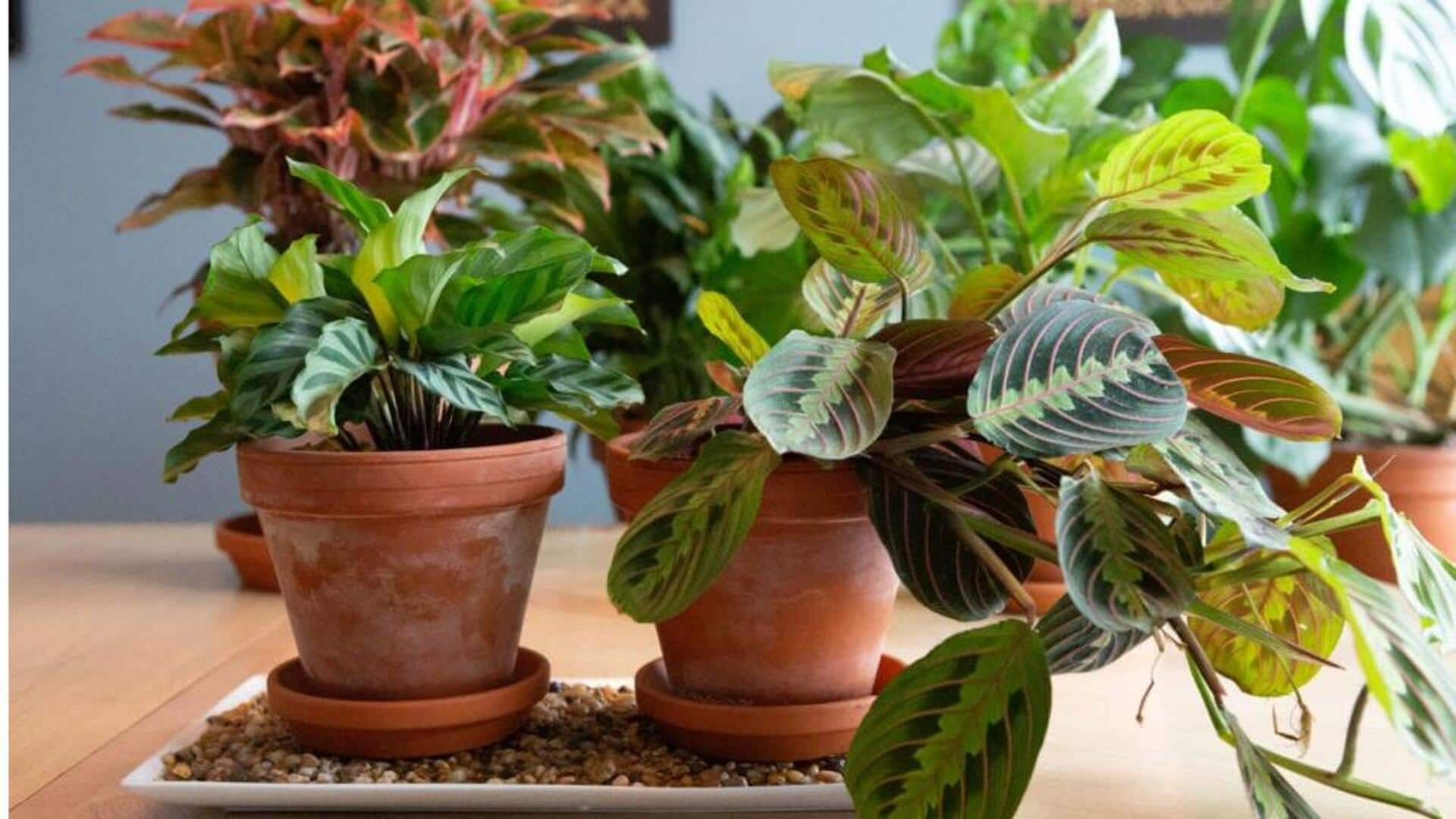
Moisture trays for plants: A simple humidity hack
What's the story
Indoor plants flourish where humidity levels are just right. One of the best ways to maintain those conditions is by using moisture trays. These trays help create a humid microclimate around the plants, which can be especially useful during dry seasons or in air-conditioned spaces. By knowing how to create and use these trays, plant enthusiasts can keep their indoor greenery healthy and vibrant.
Tray selection
Selecting the right tray
Choosing the right tray is important for retaining moisture. Select a tray that's a little bigger than your plant pot's base to leave enough room for water to evaporate. Plastic or ceramic ones work best since they don't absorb water themselves, meaning all moisture goes towards benefiting the plant environment.
Pebble Layer
Adding pebbles for elevation
A layer of pebbles at the bottom of your tray can do wonders. It keeps the pot elevated above standing water, preventing root rot, as well as allowing water to evaporate and increase humidity around the plant. Make sure the pebbles cover at least an inch of depth in the tray to provide enough elevation.
Watering method
Watering techniques for trays
When you add water to your moisture tray, be careful to keep its level beneath the pebble layer. This tactic prevents the plant pot from resting on water, preventing over-saturation of soil and root problems. Keep checking the tray and refill as needed, especially after you notice major evaporation. This careful checking keeps the right humidity around your plants and helps them grow.
Humidity check
Monitoring humidity levels
Regularly check humidity levels around your plants with a hygrometer, if possible. Ideally, you should be looking at a range of 40% to 60%, which is generally good for most indoor plants. Adjust watering frequency according to readings to keep conditions optimal without turning your space into a swamp.